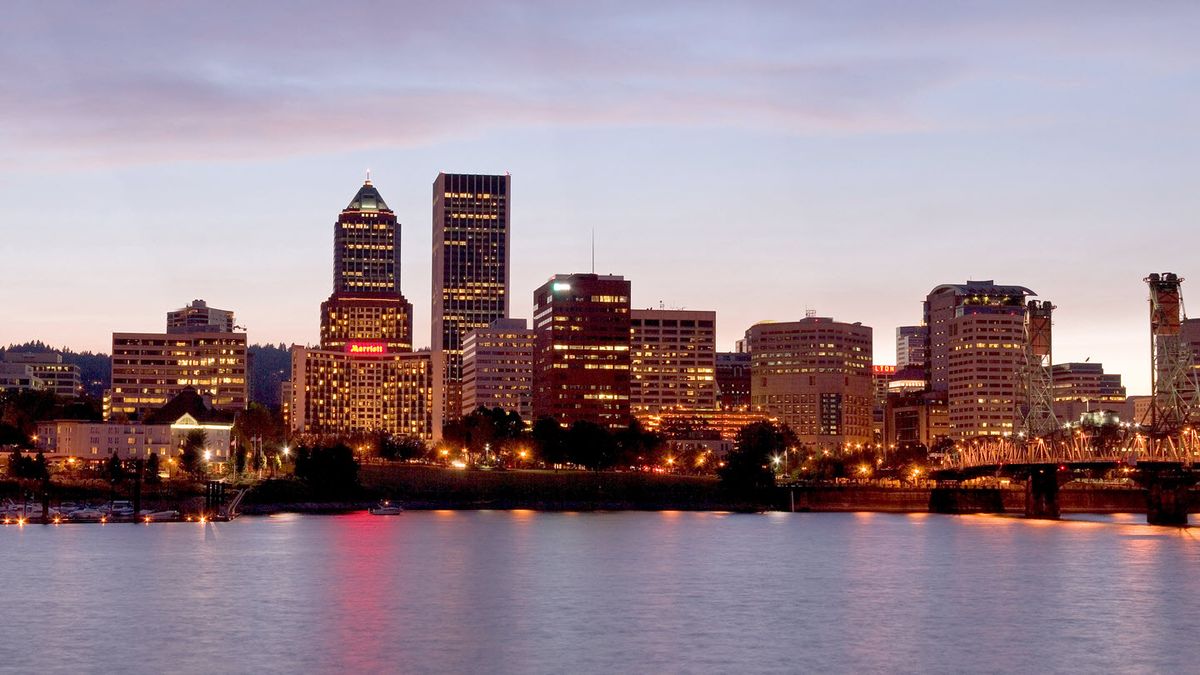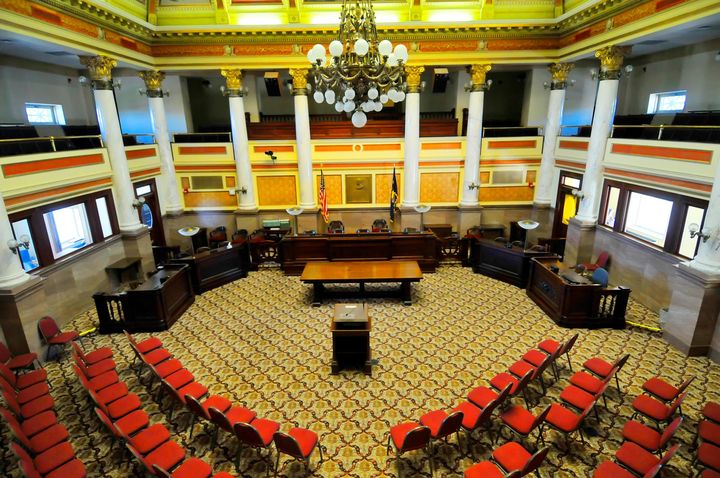The Least Transparent Big City in America
A vague state public records law, technology snafus and a lack of communication slow and stymie the accountability process in the Rose City.

For Ted Timmons, it may have started half a decade ago, with a crosswalk near a preschool in Portland, Oregon. He’s not sure. All he knows is that he asked for public records about it—whether it was possible to put a “school zone” sign there, whether city officials thought the crosswalk could be marked—and his habit grew from there.
Since that early request, Timmons estimates that he has made “probably about 50” public records requests (PRRs) in Portland, covering everything from crosswalks to the city’s policing of protests last summer. While the requests have yielded some good results, Timmons is frequently frustrated by what he calls a “self-protecting bureaucracy” that collectively doesn’t like to divulge information, even when it is required to by the city’s public records law.
That reticence likely comes as no shock to Portlanders who file PRRs. According to data scraped and analyzed by Sludge, government agencies and departments in the Portland area have the lowest success rate out of the 50 largest U.S. cities in responding to PRRs on the popular document request tool MuckRock.
Those entities also have the second-slowest average response time. Requesters in Portland have less than a 10% chance of receiving requested public records when filing PRRs via MuckRock, far below the average success rate of requests for all the cities analyzed by Sludge. (The average success rate among the 50 cities was approximately 29%.)
In the event that public documents are provided, users of the site have to wait 210 days on average for results from Portland agencies—nearly 10 times as long as in the fastest cities.
While the MuckRock definition of a city jurisdiction is not water-tight—the site includes the office of the Multnomah County District Attorney under “Portland,” for example, despite that office being an agency outside of city control—it largely aligns with the outlines of city government. By far the most requests listed on MuckRock’s Portland jurisdiction page are for documents related to the Portland Police Bureau, which has 14 times as many requests as the next most popular PRR recipient.
Blame to go around
Portland city representative Timothy Becker argued that vaguery over jurisdiction was not the only problem with the MuckRock data.
“I took this issue up with our top city attorney that now oversees the PR process for the city, and she was able to shoot huge holes through much of the MuckRock data,” Becker wrote in an email to Sludge. “They’re making claims with their data, a lot of which is just plain inaccurate.”
Becker’s emails included examples of what he alleged were completed, awaiting-payment or merged PRRs that had been marked as unsuccessful by MuckRock.
MuckRock founder Michael Morisy did not respond to individual allegations from Becker, but he did admit that comparisons between different cities’ FOIA rates are “not apples to apples, so one city that gets very basic requests and another city that gets complex requests—or gets requested information that it doesn’t possess—might skew statistics.”
That said, Morisy stated that “a success rate under 10% is a sign that something’s not working well in the process—are agencies being overwhelmed by requests, undertrained, understaffed?
“How do they view the public records process and the need to help inform the public about their work?,” Morisy stated. “A lot of agencies have an entrenched attitude of public records as a nuisance and so they don’t build out the processes they need to do to really support it and most importantly, don’t help the entire organization understand transparency is everyone’s responsibility.”
A city representative for Columbus, Ohio, which has the fastest response time on MuckRock of the 50 cities examined—along with the third-best success rate—declined to comment when asked by Sludge for tips on running a transparent city government, but Shasta Kearns Moore, the acting president of the education and advocacy group Open Oregon, has some ideas.
“Open Oregon believes agencies should design IT programs from the ground up to be capable of responding to public records requests,” Moore wrote in an email to Sludge. “Responding to public records is a core function of government—part and parcel of public service. The information in a democracy belongs to the people. Government officials need to plan and budget for that—not treat it as an afterthought.”
Beyond a purely technological solution, the creators of MuckRock cite calls by Portland citizens for “more teeth and fewer loopholes and vague language” in the Oregon Public Records Law. That law, unlike many other states’ public record regulations, does not specify a time limit after which agencies must respond to PRRs, and it does not set up an appeals process of the type that many states use.
Were the 2020 summer protests responsible for Portland’s poor ranking? Several people interviewed for this story wondered whether Portland’s summer protests were responsible for its PPR backlog. While this is undoubtedly a factor, two other cities with strong summer protest movements, Minneapolis and Seattle, both fall closer to the middle of the city rankings. So curiosity over the protests is unlikely to be solely responsible for Portland’s showing.
Moore says that the biggest roadblock governments put in front of PRR requesters, however, is “being poorly organized.” That impedes what she calls the “collaboration” between citizens and government workers that is needed for a well-run government.
Morisy seems to agree, saying that the winning model for a responsive city government “is a mix of process and culture.”
Mixed results
Not all experiences with public records along the Willamette are negative. Kate Kaye, a technology reporter based in Portland, told Sludge that her limited experience with city government “has been relatively positive.”
“My experience dealing with government [in Oregon] is actually far better in terms of responsiveness and general helpfulness than when I worked temporarily in 2019 [as] an investigative journalist covering New York State related issues,” Kaye stated.
And public records activist Timmons had a good experience when requesting information on the cost of the “City Hall Wall”—a downtown barrier that existed for all of a day last summer, during the protests following the police killing of George Floyd.
“I think I asked for the invoice the same day it was being removed,” Timmons wrote. “The person knew the invoice would be super-easy to disclose but hadn’t received it yet. She got it to me a few days later when it appeared. That was really helpful and such a better experience than rejecting it with ‘no responsive records’, which would have been technically correct.”
Still, Timmons has “about 10” document requests open right now—many filed shortly after the summer protests.
In those requests, Timmons requested incident commander reports—documents that are “supposed to be a written report anytime a riot or use of force is required.”
He’s still waiting.
See the full lists of Muckrock transparency rankings for the 50 largest U.S. cities here. Full text of interviews/emails for this story can be found here.
Read more from Sludge:




Comments ()